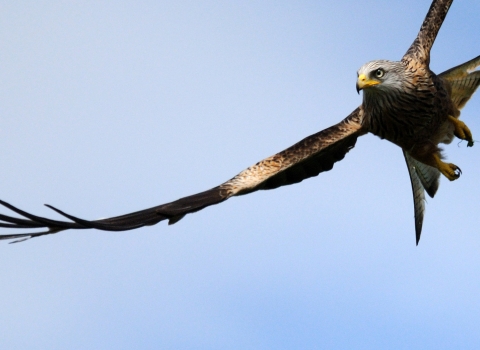On 19 December 2018, the Government published a set of draft clauses that it is planning to include in its full Environment Bill. While the measures in the draft are a step in the right direction, Surrey Wildlife Trust believe that the draft does not go far enough to properly protect wildlife and ensure its recovery.
The Government has committed to improving the environment so it is left in a better state for future generations; but significant shortcomings in the draft proposals, including a weak watchdog and a lack of binding environmental principles, mean wildlife could be worse off under the new laws.
Environmental Improvement Plans
Under proposals in the draft, the Government would have to introduce long-term environment plans lasting at least 15 years. These would set out steps the government intends to take to improve the environment. Each plan would have to be reviewed every five years and the Secretary of State for Environment, Food and Rural Affairs (currently Michael Gove) would have to regularly check that the state of the natural environment is improving under the plan.
When the period of the plan is up, it would be replaced by another plan, again of at least 15 years.
The proposals are a step in the right direction, requiring the Government to commit to the long-term improvement of the environment and to report regularly on this improvement.
However, the scope of these plans is not clear. For instance, the Government can report on ‘whether the natural environment is, or particular aspects of it are, improving’, so it could choose to either assess the state of the environment generally or focus only on, and cherry pick, particular parts to show how its plans are progressing.
The Office for Environmental Protection (OEP): A toothless watchdog
A key proposal in the draft is the creation of a new watchdog to provide scrutiny and advice on environmental protections, including on breaches of environmental regulation and principles. Its purpose is also to hold the government to account on environmental issues.
However, the proposed watchdog, the OEP, does not have the proper independence or powers to be effective:
- The Secretary of State would set the budget of the OEP, meaning they could underfund the body. This could leave the watchdog with limited resources and unable to fully investigate all appeals.
- The Secretary of State also appoints non-executive membersto the body, including the Chair.
- An OEP meeting is not valid unless a majority of those present are non-executive members, i.e. those appointed by the Secretary of State. This undermines the OEP’s independence, as it cannot make decisions without a majority of those present having been appointed by the Government.
- The OEP does not have the power to issue fines to public bodies and the government, so it lacks real teeth
An independent environmental watchdog with real powers is vital if environmental regulations are to be properly enforced and upheld. Such a body would challenge politicians to meet their environmental obligations and, by issuing fines, could properly penalize decisions which harm the environment. Local residents could also appeal planning decisions that harm wildlife and other infringements of environmental protections.
No binding duty to protect the environment
The Environment Act will introduce new environmental principles which will guide politicians and policymakers. The Government’s ambition is for these environmental principles to create a system of 'green governance' and to 'act as guidelines for policymakers' about how the environment can be improved.
Yet, under this draft, politicians are not bound by environmental principles. They ‘must have regard to’ the principles, so are not obliged to include them, or to consider the improvement of the environment, in the policymaking process.


